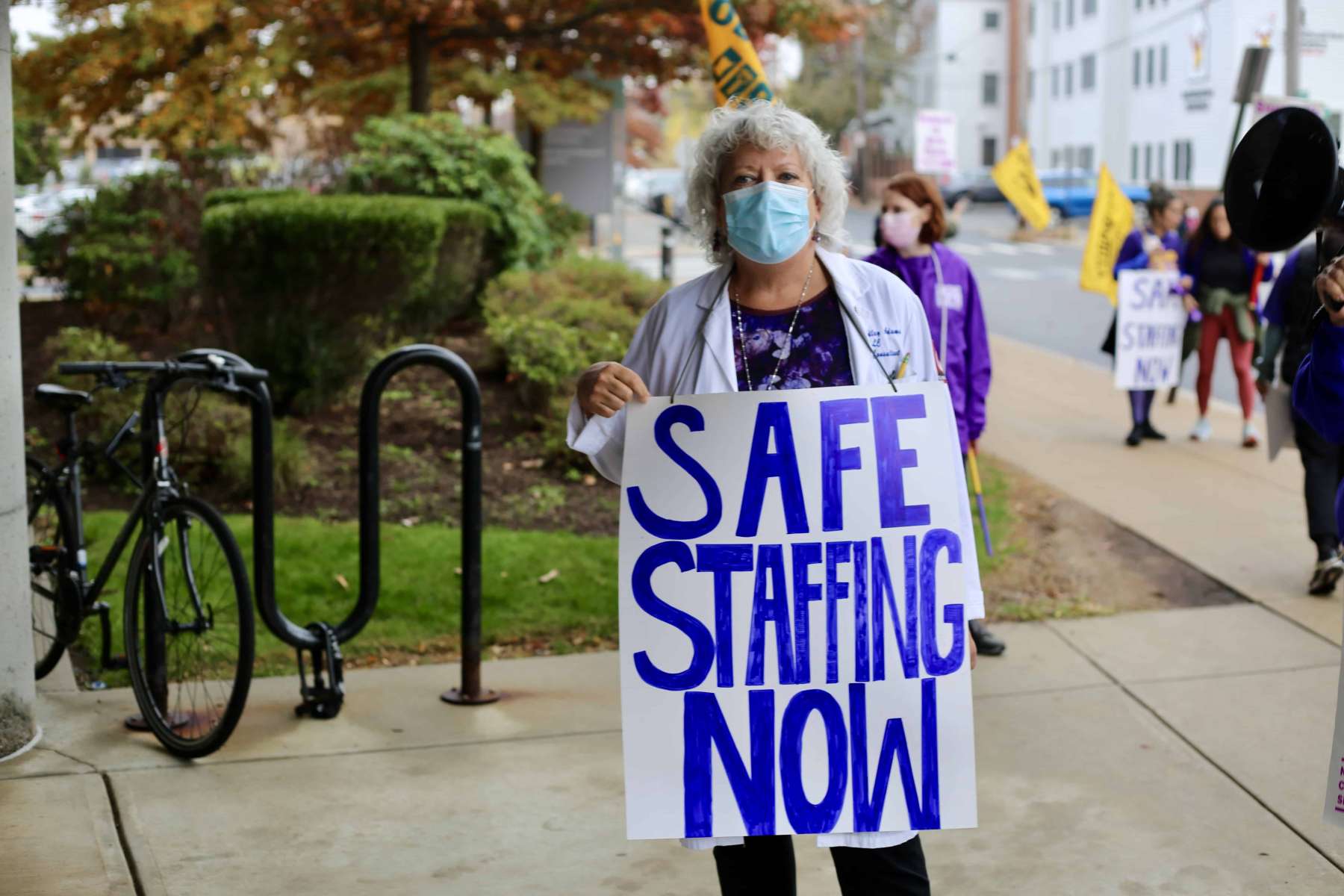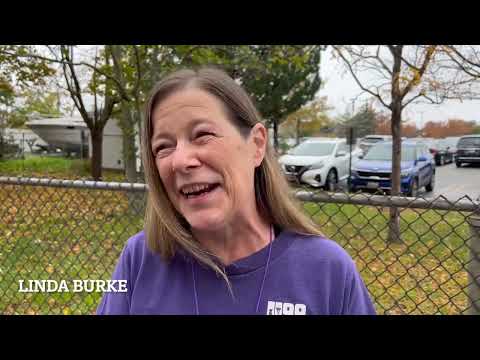Caregivers at Women & Infants picket in response to staffing and funding concerns
Hospital caregivers are demanding Care New England sit down with themto discuss how best to invest ARPA funds in critical workforce stabilization measures including competitive wage increases, safer staffing levels, free or reduced training and career development.
November 3, 2022, 2:29 pm
By Steve Ahlquist
Caregivers at Care New England’s Women & Infants Hospital gathered for an informational picket to call for an end to dangerously short staffing levels that put patients and staff at risk on Tuesday. Caregivers, who consist of hospital workers that provide direct care to patients, are members of SEIU 1199NE. They have been demanding for months that management sit down to discuss short and long term solutions to invest the $45M Rhode Island hospitals have received in COVID-relief ARPA funds. Hospital executives have refused to engage in dialogue to address the ongoing staffing crisis that possesses no end in sight.
“The ARPA funds the Rhode Island General Assembly gave to the hospital included a stipulation that 80% of those funds would go to the frontline healthcare workers and to direct patient care,” said Linda Burke, a Phlebotomist at Women and Infants. “We have requested that we sit down with the hospital and negotiate the allocation of those funds… for months… a few weeks ago we met with [hospital administrators] and we got our answer. Dr. [James] Fanale said we will not be receiving any of those funds, that we had already received money during the summer…
“The staffing in this hospital is our biggest concern. The safety of the patients is our biggest concern. The allocation of those funds would help us with staff retention [and] with staff recruitment…”
Each day, over 1,700 frontline caregivers at Women and Infants provide quality care to mothers and newborns as well as provide a variety of women’s health services. But for years, caregivers and other frontline staff have worked without the staffing they need which was made far worse by the COVID-19 pandemic. Frontline caregivers at Women and Infants Hospital were instrumental in securing $45 million of ARPA funds through the Rhode Island state budget intended to help stabilize a workforce desperately depleted over two years of pandemic strain with the General Assembly stipulating 80% is required to invest directly in frontline workers.
When asked for comment, Woman & Infants gave a contradictory explanation indicating both that they are facing staffing shortages and that staffing is adequate at this time. The hospital also claimed to be in talks with employees and union reps.
A request for comment from the offices of the Speaker of the House and the Senate President about these funds and their allocation was not met with a reply at press time.
Caregivers are demanding Care New England sit down with frontline caregivers and discuss how best to invest ARPA funds in critical workforce stabilization measures including competitive wage increases, safer staffing levels, free or reduced training and career development. Without meaningful staffing increases, the hospital will not be able to turn the corner on recruitment and retainment and provide high quality care to vulnerable patients.
“After more than 30 months of working throughout the pandemic, frontline caregivers, and the system itself is at a breaking point,” said Kelli Price, Registered Nurse in the Medical, Surgical, Oncology, Critical Care unit for over 20 years in a statement. “Staffing was bad before COVID and now we can’t even find enough caregivers to properly staff various departments in our hospital, including the nursery and the NICU, forcing parents to have to go out of state at times to receive care. We have risked our own safety and that of our families, pulled extra shifts and held up our end of the bargain; now we are calling on management to sit down with us and tell us what their plan is to get our system back on track. Enough is enough.”












